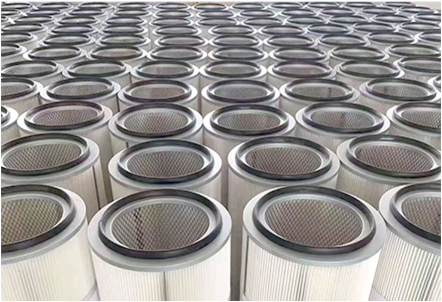 Tel:
+8615930870079
Tel:
+8615930870079
11월 . 25, 2024 03:01 Back to list
gas turbine inlet filter
The Importance of Gas Turbine Inlet Filters
Gas turbines play a critical role in various industries, including power generation, aviation, and marine propulsion. These machines convert energy from fuel into mechanical work, which can then be transformed into electricity or used to propel aircraft. One of the essential components of gas turbines is the inlet filter system, which protects the turbine from contaminants present in the air. The significance of these filters cannot be overstated, as they directly influence the turbine's performance, efficiency, and longevity.
Function and Types of Inlet Filters
Inlet filters serve to prevent dirt, dust, moisture, and other particulates from entering the turbine. A clean air supply is vital for efficient combustion and optimal operation. If contaminants infiltrate the turbine, they can lead to erosion, corrosion, and fouling of components, which can significantly impair the efficiency and reliability of the system. The result is often increased maintenance costs and reduced operational life.
There are several types of inlet filters used in gas turbines, including panel filters, bag filters, and cyclone separators. Panel filters are typically made of fibrous materials and are designed to capture larger particles. Bag filters, on the other hand, have a greater surface area and can trap smaller particles. Cyclone separators utilize centrifugal force to remove larger contaminants, working well as a pre-filter before utilizing finer filtration systems.
Performance and Efficiency
The effectiveness of an inlet filtration system significantly impacts the overall performance of a gas turbine. Studies have shown that turbines equipped with high-efficiency filtration systems can experience improved power generation capabilities. By maintaining a consistent air supply free from particulates, turbines can operate closer to their design efficiency. Additionally, cleaner air leads to optimal combustion conditions, resulting in better fuel efficiency and lower emissions.
However, the filtration system must strike a balance between airflow and filtration efficiency. Too restrictive a filter can hinder airflow, causing a decrease in turbine performance and efficiency. Thus, selecting the right filter, regularly maintaining it, and replacing it when necessary are crucial actions.
gas turbine inlet filter

Maintenance Considerations
The maintenance of gas turbine inlet filters is critical to ensuring that they function effectively. Regular inspections should be performed to check for dirt accumulation and the general condition of the filters. Inlet filters should be replaced based on manufacturer recommendations or when they show signs of significant clogging. Neglecting filter maintenance can lead to increased pressure drops, causing the turbine to work harder and potentially leading to mechanical failures.
In some cases, advanced monitoring systems can be employed to assess filter performance continuously. These systems can provide real-time data on pressure differentials across the filter media, which allows for proactive maintenance before problems arise. Implementing such technology can extend the life of both the filters and the turbine itself.
Environmental Impact and Sustainability
As the world strives for greater sustainability, the role of inlet filters in gas turbines is also evolving. The energy sector is increasingly shifting towards renewable sources, yet gas turbines will continue to play an important role, especially in hybrid systems and as backup power sources. Therefore, utilizing advanced filtration technologies can help decrease the environmental footprint of gas turbine operation by ensuring cleaner emissions through better combustion efficiency.
Furthermore, innovations in filter materials and designs are making it possible to develop greener filters that are more efficient and easier to recycle, further contributing to sustainability efforts in the energy sector.
Conclusion
Gas turbine inlet filters are a fundamental component in the operation of gas turbines, impacting their performance, efficiency, and overall lifespan. Given the increasing complexity of energy demands globally, ensuring that gas turbines operate at peak efficiency is essential. Effective inlet filtration not only maximizes performance but also contributes to environmental sustainability. As technology advances, the design and efficiency of these filters will continue to improve, making gas turbines even more reliable and eco-friendly in the years to come. Proper maintenance and innovative filtration technologies will remain key to unlocking the full potential of gas turbine systems in our transition to a more sustainable future.
-
Nano Fiber Technology: Revolutionizing Cartridge Dust Collector FiltersNewsAug.06,2025
-
How Activated Carbon Air Cartridges Eliminate OdorsNewsAug.06,2025
-
Dust Filter Cartridge Handling Fine Particulate MatterNewsAug.06,2025
-
Cartridge Dust Collector Filter for Welding Fume ExtractionNewsAug.06,2025
-
Activated Carbon Filter Cartridge Effectiveness Against VOCsNewsAug.06,2025
-
Activated Carbon Air Filter Cartridge Benefits ExplainedNewsAug.06,2025

 Email:
Email:





